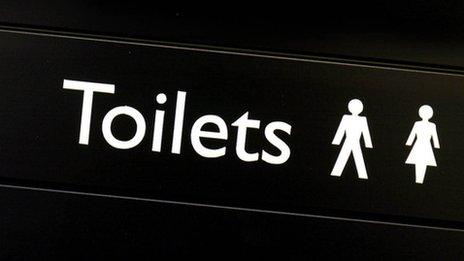Down the drain: Public loos a 'right' or a waste of money?
- Published
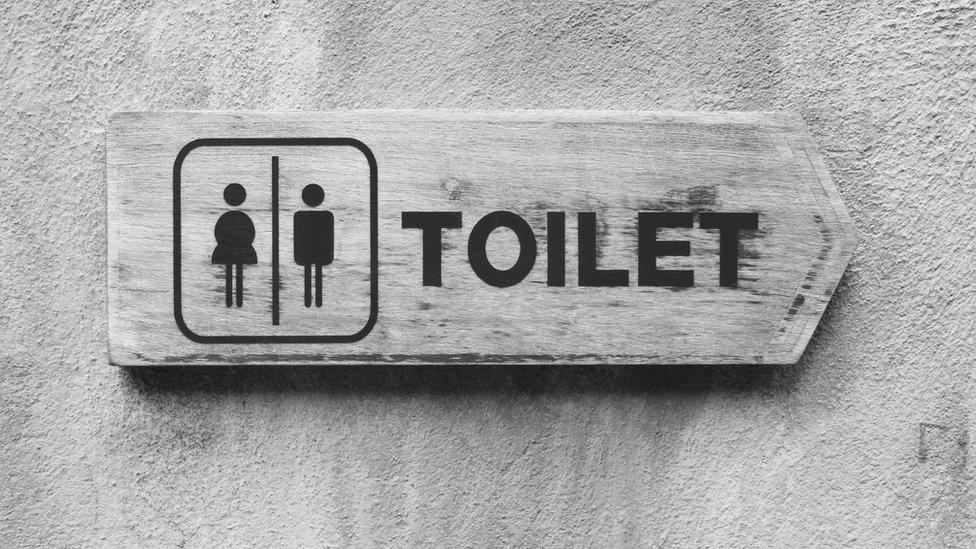
How much would you be willing to pay to 'spend a penny'?
When they were first introduced public toilets cost 1p to use, leading to the coining of the famous phrase.
The British Public Toilet Association (BTA) believe people should pay up to £1 a time to use their public loo to stop it being flushed away.
But with BBC research showing one in five council run toilets have closed since March 2013 in the face of budget cuts, would some extra pennies be enough to save public loos in Wales?
As more toilets have shut some Welsh communities have rallied together and taken over the running of the facilities they believe are "vital" to the economies and wellbeing of their towns and villages.
In Cardigan a group of residents took over the running of two public toilets after Ceredigion council announced plans to shut a number in the face of budget pressures.
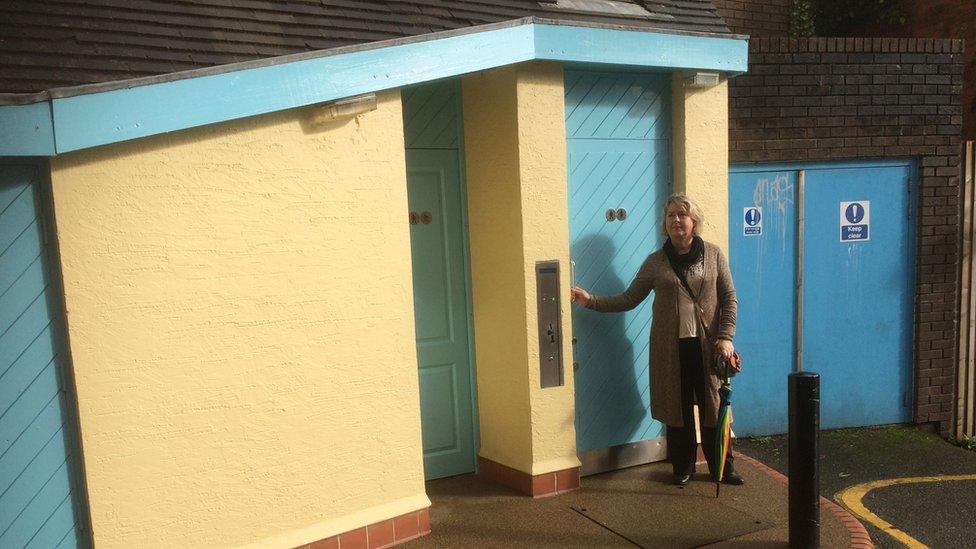
Shan Williams said the community took over this public toilet to keep people shopping on Cardigan's high street
4CG - a not-for-profit group which started life as six residents and now has more than 800 shareholders - has introduced a 20p charge for use of the town's toilets.
Chairwoman Shan Williams said there was "total dismay" when the council announced closure plans two years ago as the other toilets were not accessible for older people or close enough to the shops.
"There was just disbelief, the high street was struggling as it was, it was just another blow to them," she said.
"It is about encouraging people into the town to spend money. When there is nowhere to go to spend a penny you have to go home or you go to the major supermarket - without them you can't compete - it was ridiculous they were closed."
Between March 2013-16 Ceredigion council spent £2.8m running public toilets - they closed seven in the same period.
Five of these have been taken over by concerned community groups, including the two taken over by the 4CG, and the council say they are continuing to look at using halls and businesses to allow people to use their loos, but there were issues around insurance.
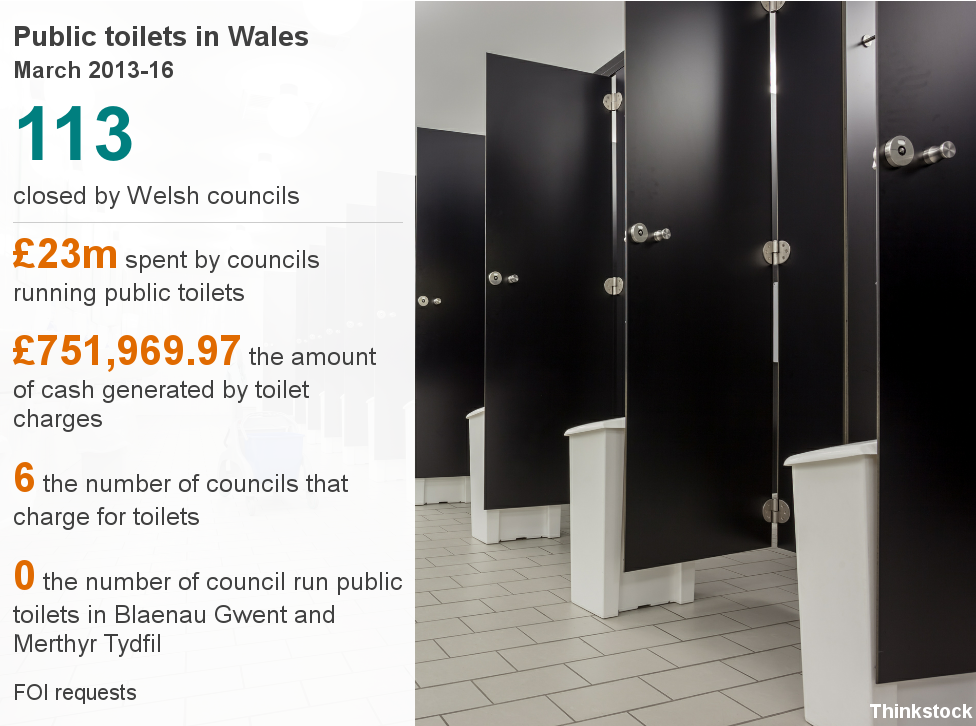
Currently there is no duty on local authorities to provide public toilets in Wales. The 1976 Local Government Act means authorities simply have the power to install them in places of entertainment and other "relevant places".
The Public Health Wales Bill - currently being considered by the assembly - will make it a requirement for councils to draw up strategies for public toilet provision in their area.
The Welsh Government believes this will improve the planning of provision and access to toilets, benefiting whole communities as well as groups such as older people.
But the WLGA said councils would need "flexibility" to work with community groups and town councils to run public toilets in the face of a "£570m funding shortfall by the end of 2019-20."
'European inspiration'
Raymond Martin, of the BTA, said the bill was leading the way in addressing the issue, but there had to be a way of making sure council's filled the gap.
He said councils needed to start thinking of new ways to run public toilets to help meet the over £7m a year running costs.
This could include opening community visitor hubs - with toilets, a tourist information centre and a cafe - opening up toilets as franchises to pay for the cost of running the facilities, or introducing charges similar to those set across Europe.
"When charges were first brought in for WCs in the 1990s it cost a penny, if we equate that to today a first class stamp is 61p, we should be looking at paying about 60p to £1 to use the toilet," he said.
"The management of toilets has gone down because councils are being forced to run it, it is affecting the health of the nation.
"At the moment all they are saying is we don't have any money, there is no legislation saying we have to provide for these things, so we will close them - they know in their hearts this is going to cause pain."
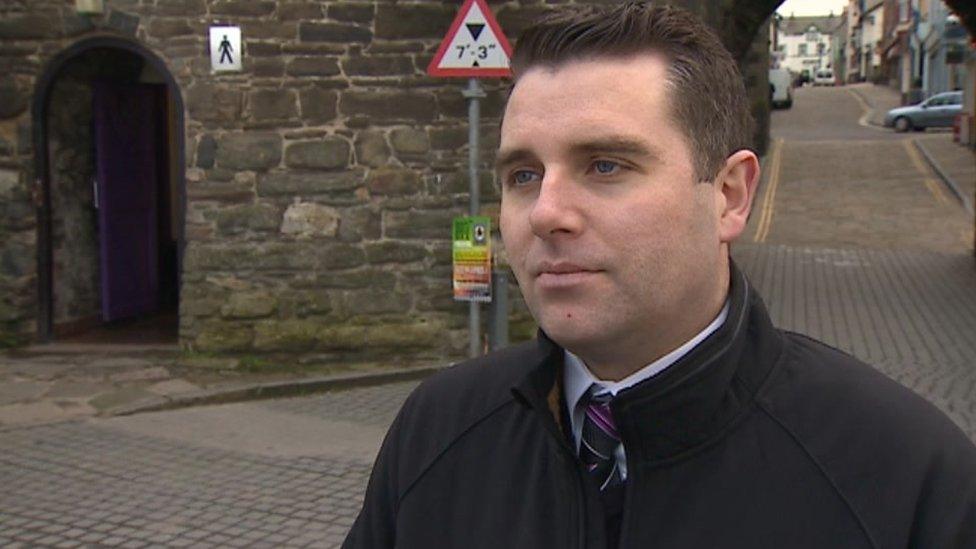
Damian Bellis, who has Crohn's Disease, said not being able to access public toilets could cause distress
There are concerns public toilet closures are making it more difficult for older people, those with young children, and people with medical conditions to go about their daily lives.
Damian Bellis, from Llanfairfechan, was diagnosed with Crohn's disease in 2011, a form of Inflammatory Bowel Disease (IBD).
The father-of-three had bowel surgery last year, leaving him with three ostomy bags. He said people with chronic medical conditions - like his - relied on public toilets.
He said he had experienced "tutting" when he had tried to use disabled toilets, using his radar key - as people did not think he "looked disabled".
"Some people make decisions on their day based on whether there are public toilets available, people will decide where to go and when based on if there is a toilet available," he said.
"Sometimes if I don't take my radar key with me, finding a toilet is an issue and then finding one that is open and accessible is definitely an issue for me."
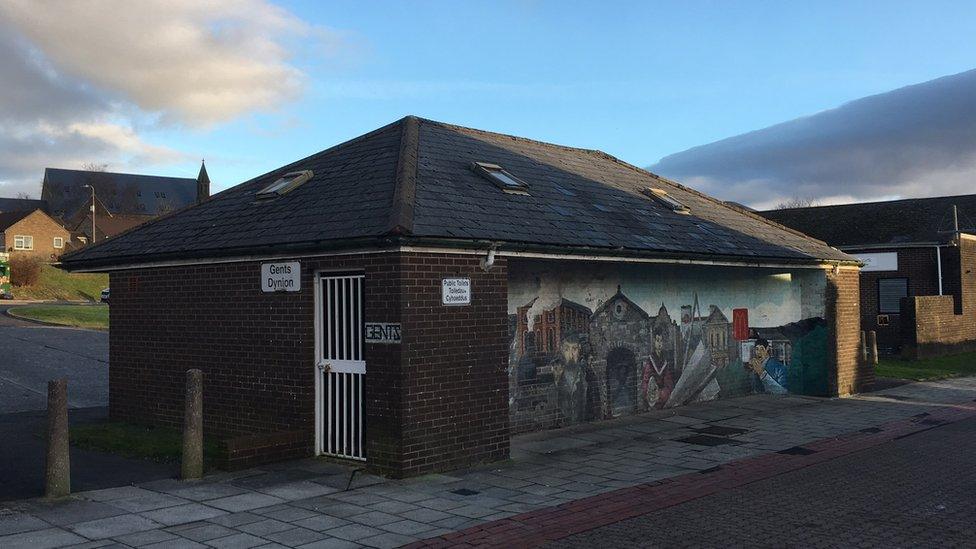
A disused public toilet decorated with a colourful mural in North Street, Dowlais, in Merthyr Tydfil
But while the future is looking bleak for toilets in Wales, there are people out there who are willing to spend more than a pretty penny on them.
While there are no council-run toilets left in Merthyr Tydfil after cuts, one derelict loo block sold for £37,000 at auction - six times the recommended guide price.
- Published9 February 2017
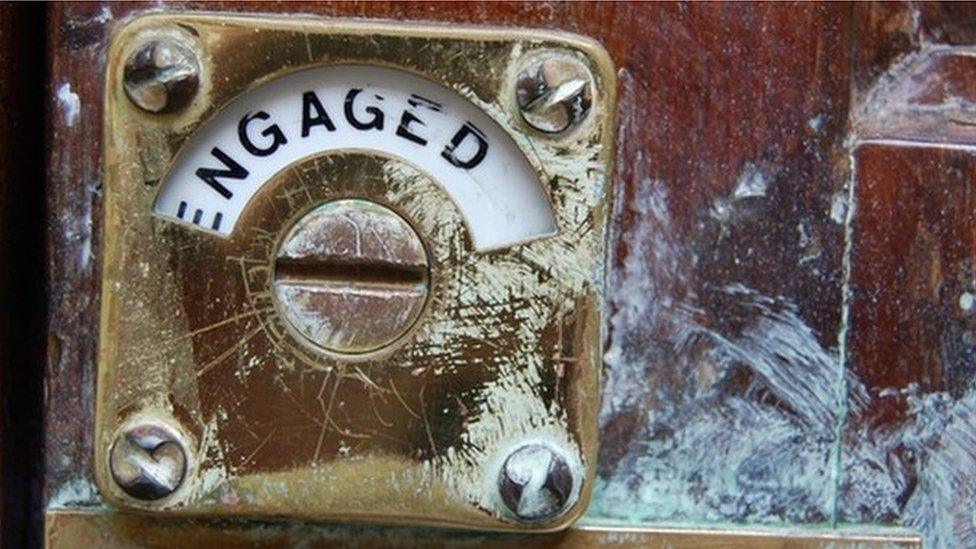
- Published12 May 2014
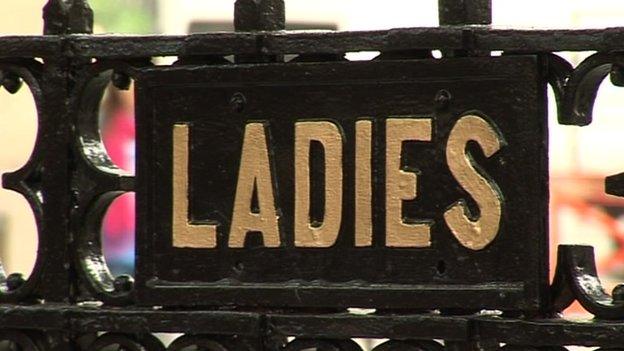
- Published30 March 2014
